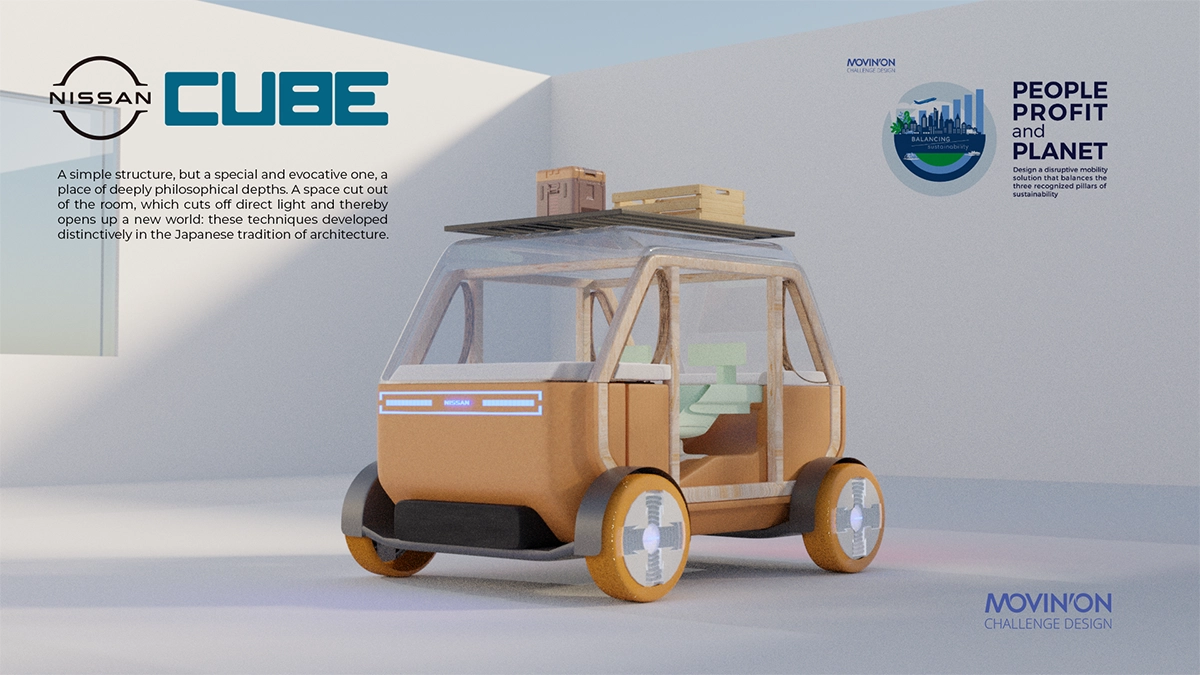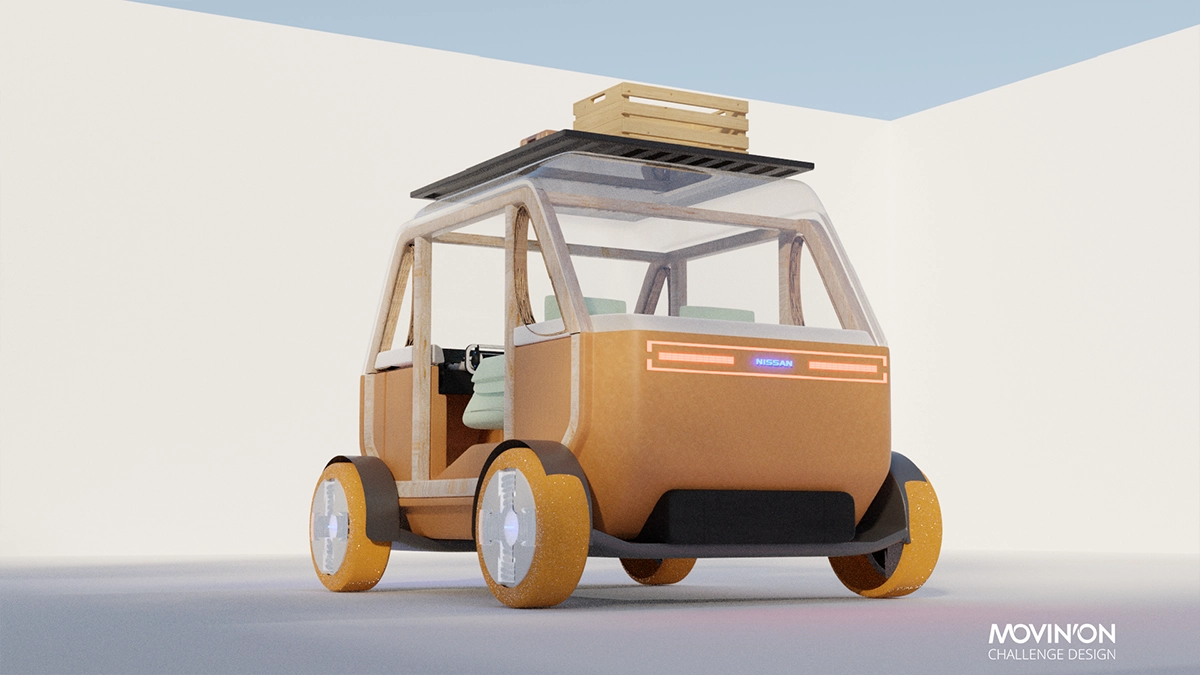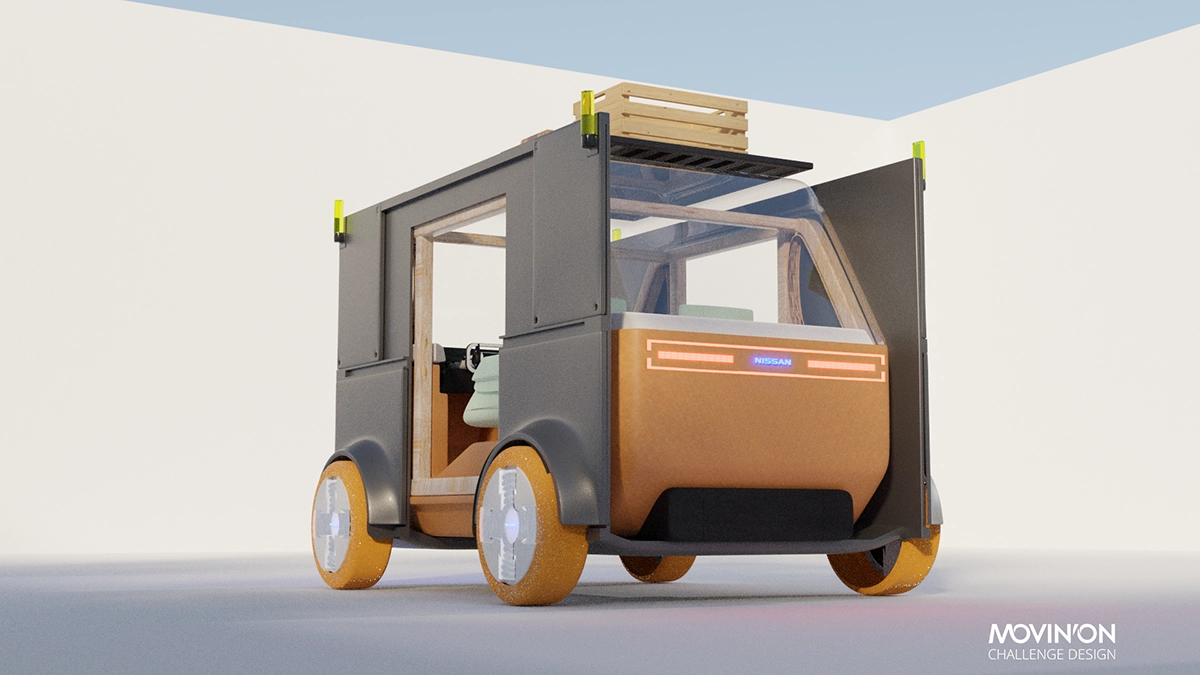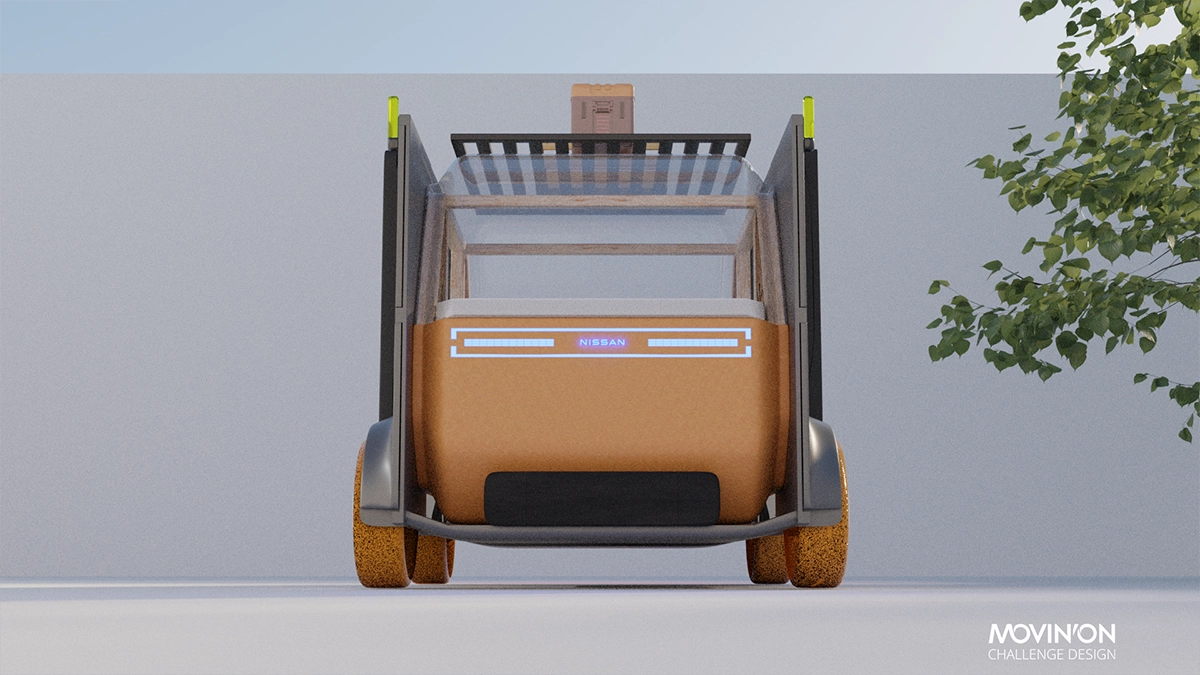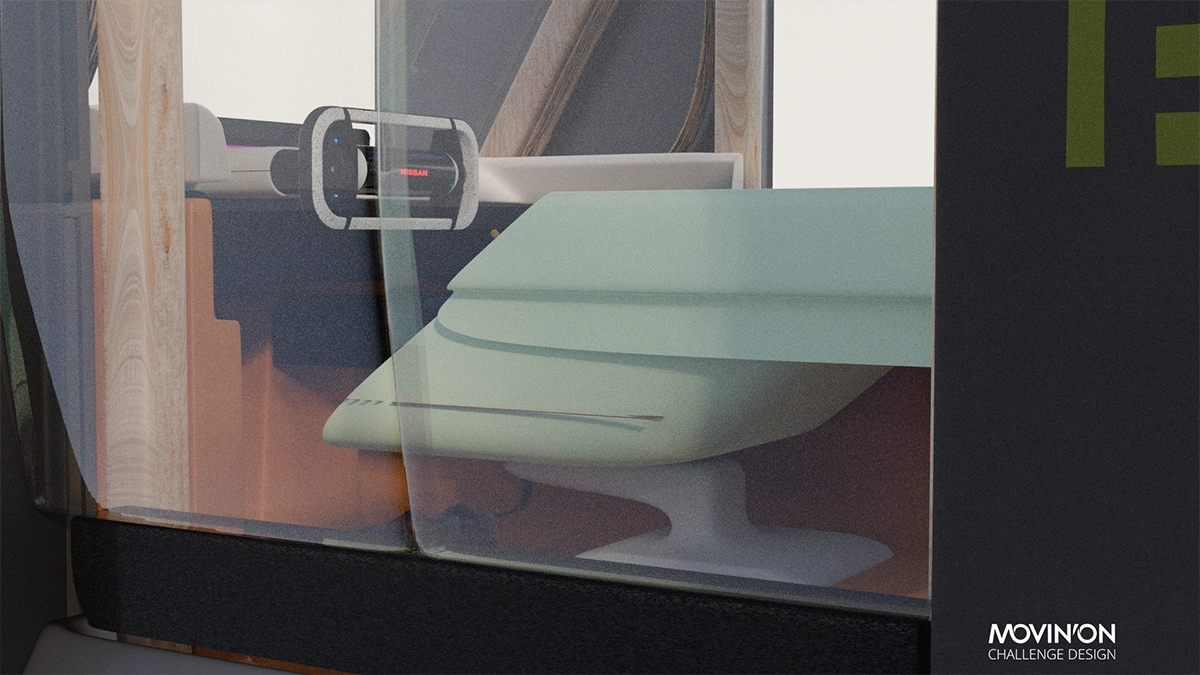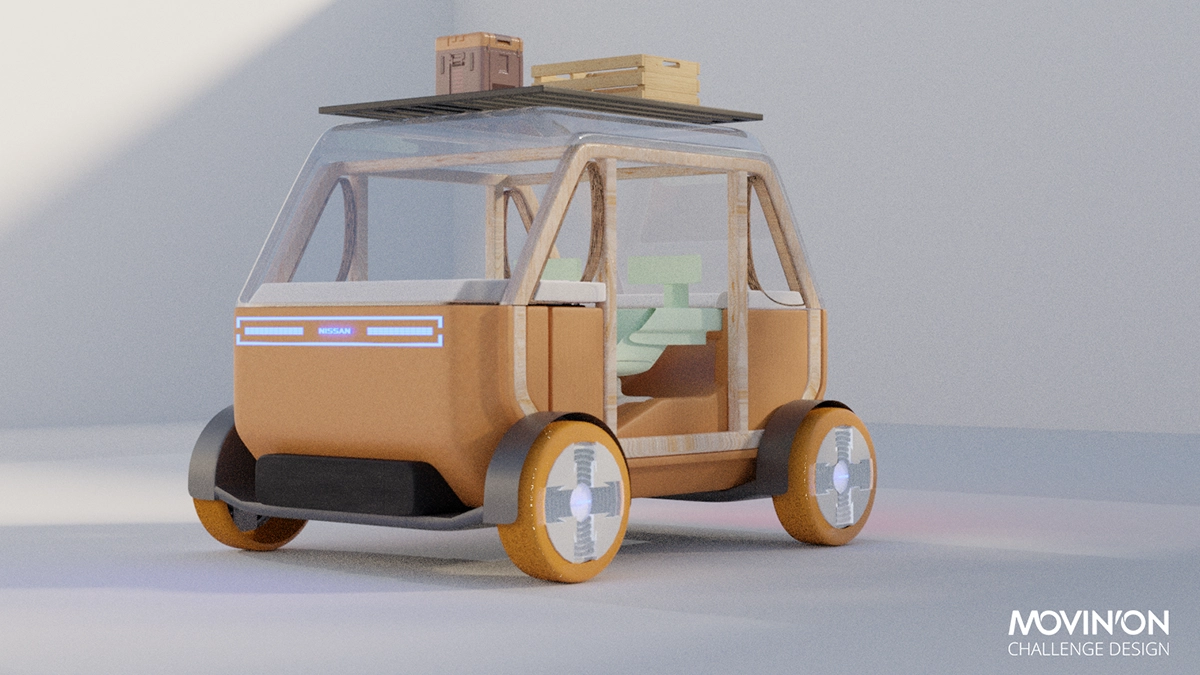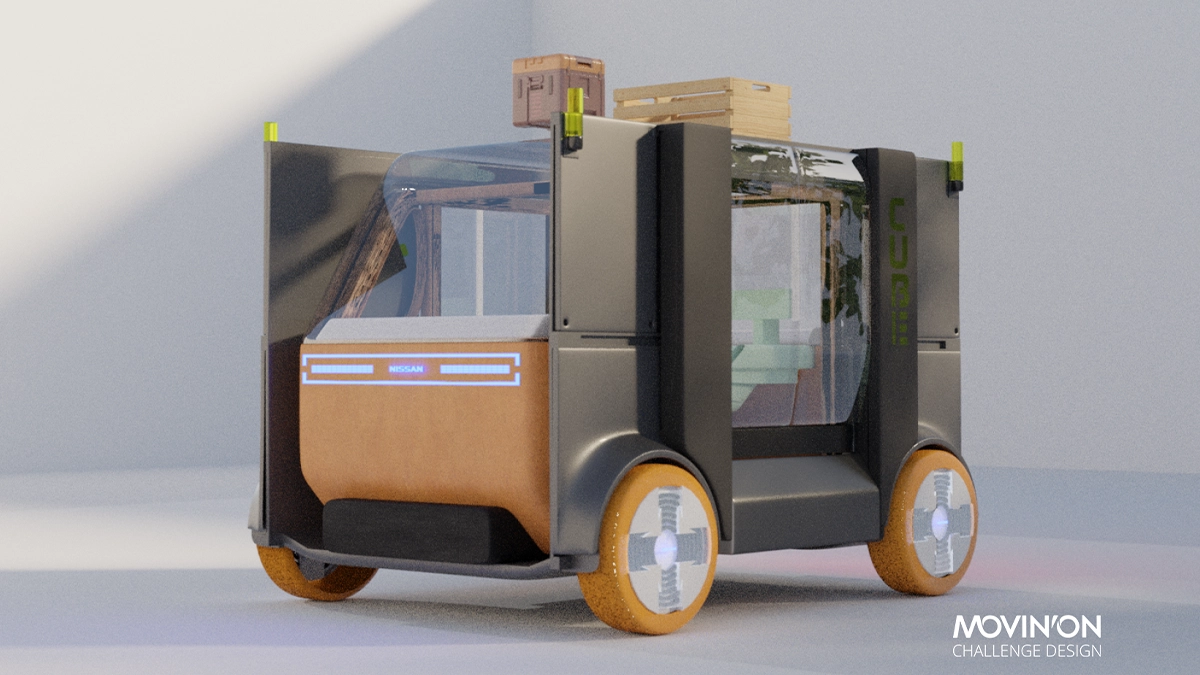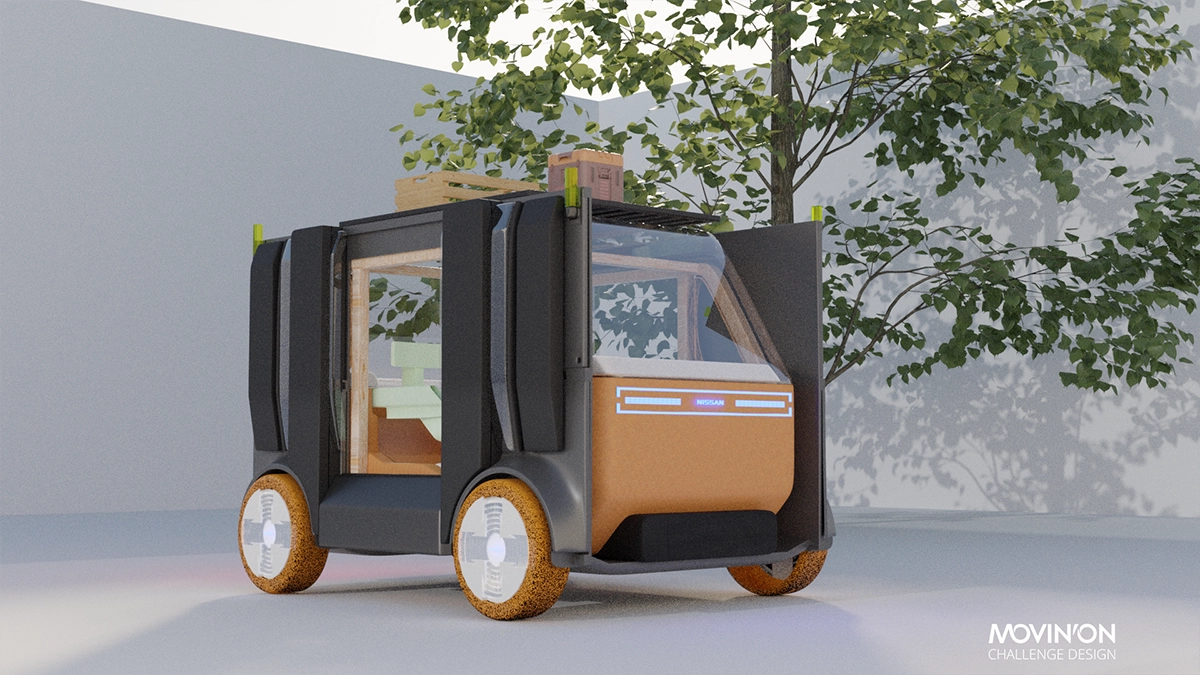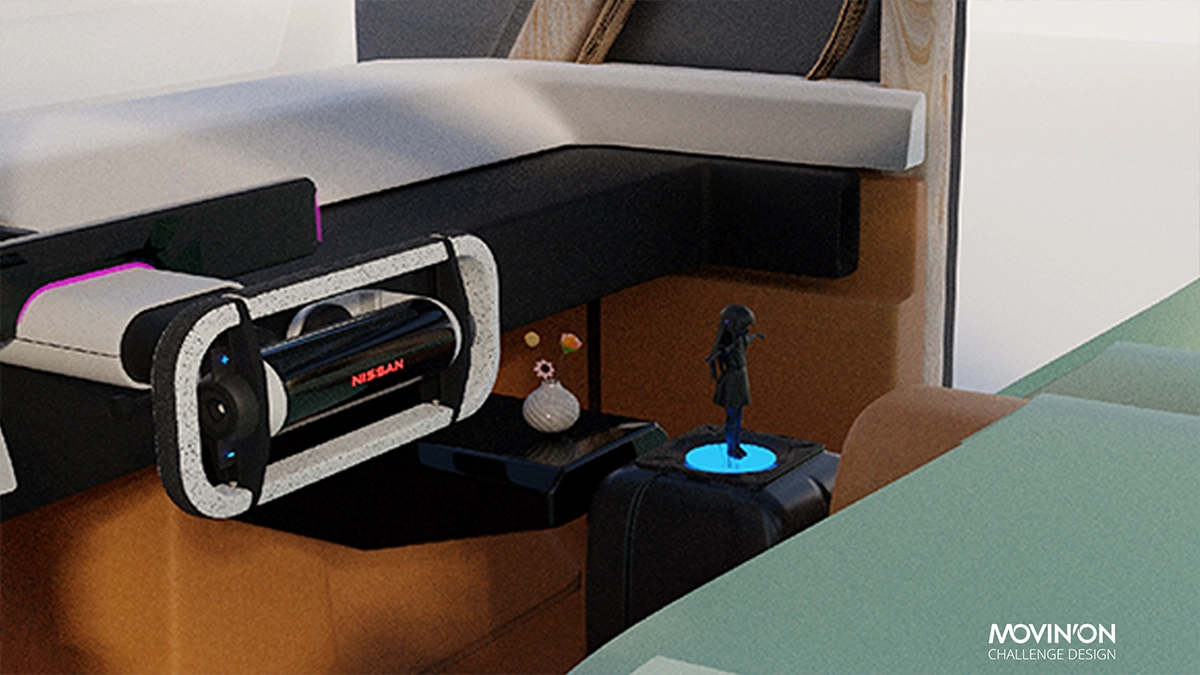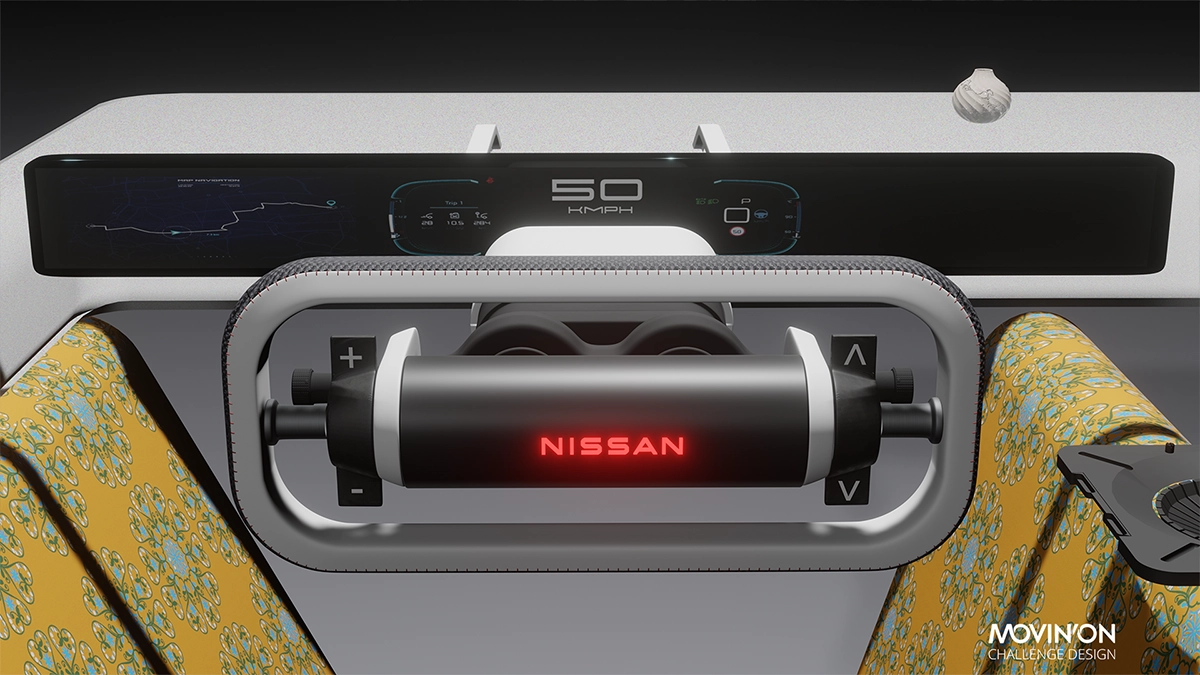In today's fast-changing world, sustainability goes beyond just caring for the environment. It's about taking a broader approach that includes cultural diversity and recognizing the deep wisdom and traditions found in various societies. Culture-inspired sustainability isn't just a trendy term; it's a significant change in how we think about and put sustainable ideas into action. Various cultural traditions and rituals often contain elements of sustainability, such as celebrating seasonal harvests, respecting natural cycles, and promoting community cooperation. By reviving and adapting these traditions, communities can reinforce sustainable behaviours and foster a deeper connection to the environment.
This Nissan Cube project aims directly at Japan's younger generation, specifically Gen-Z. Known for their environmental awareness and strong commitment to sustainability, this demographic has grown up surrounded by technology, making them naturally adept at navigating digital platforms. With a lesser inclination towards materialism and a shift away from traditional full-time employment due to economic factors and increased competition, they represent a unique demographic with distinct values and priorities.
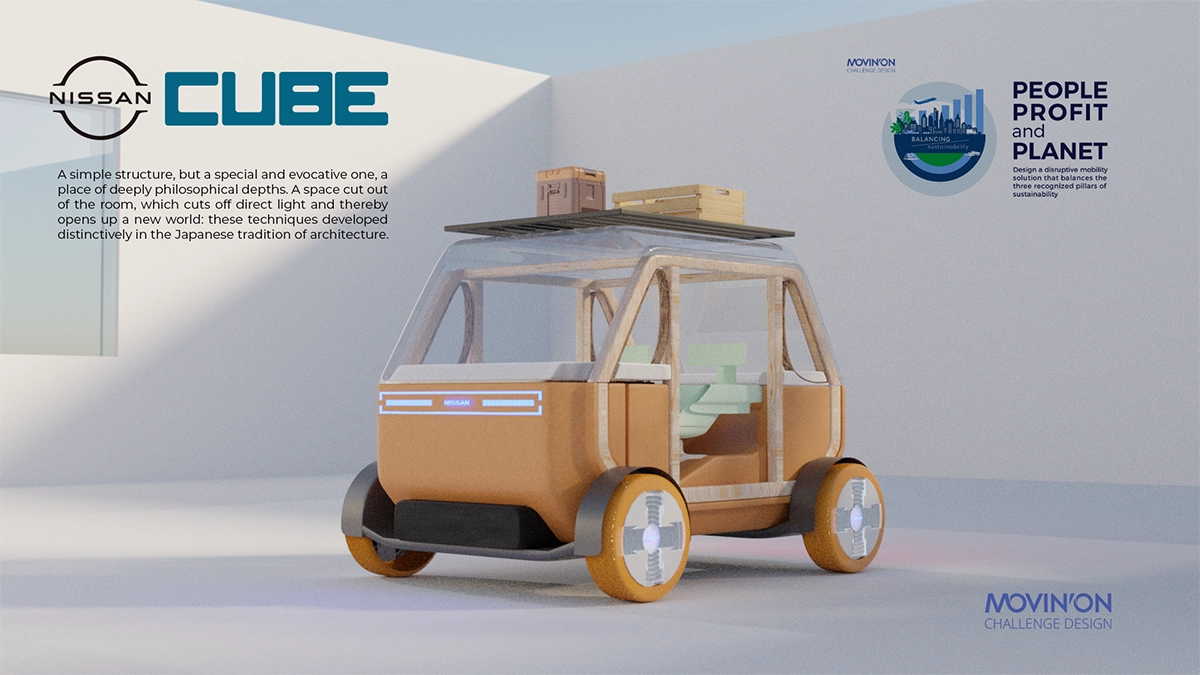
Japanese architecture frequently integrates sustainability principles, blending traditional methods with modern innovations to construct eco-friendly buildings. With a strong emphasis on harmony with nature, Japanese architectural designs seamlessly merge with the surrounding environment. They prioritize natural materials, optimizing sunlight and airflow for energy efficiency. Utilizing locally sourced and renewable resources like wood, bamboo, and paper, Japanese structures minimize their environmental impact. Embracing minimalism, Japanese architecture prioritizes simplicity and practicality, reducing resource consumption and maximizing space efficiency. The essence of Japanese architectural tradition lies in its profound philosophical underpinnings, evident in its simple yet impactful structures. These spaces, almost like carved-out sanctuaries, manipulate light to unveil a whole new world.
Redefining Urban Commuting with the Nissan Cube 2040
The Nissan Cube, a compact multi-purpose vehicle (MPV) manufactured by Nissan from 1998 to 2019, stands out with its distinctive features like its boxy shape, asymmetrical rear window, and quirky design elements. With its square body, asymmetrical rear window, and rounded edges, coupled with a tall roofline providing ample headroom and a spacious interior, the Cube offers a unique driving experience. Fast forward to the Nissan Cube 2040, sustainability takes centre stage, specially tailored for Tokyo's confined spaces. This updated version offers a flexible layout, functioning as both a private sanctuary and an open environment as required. By incorporating opaque surfaces and minimal openings, the design fosters a sense of seclusion and intimacy, encouraging reflective moments within the interior space while staying connected to the natural surroundings, away from external distractions.
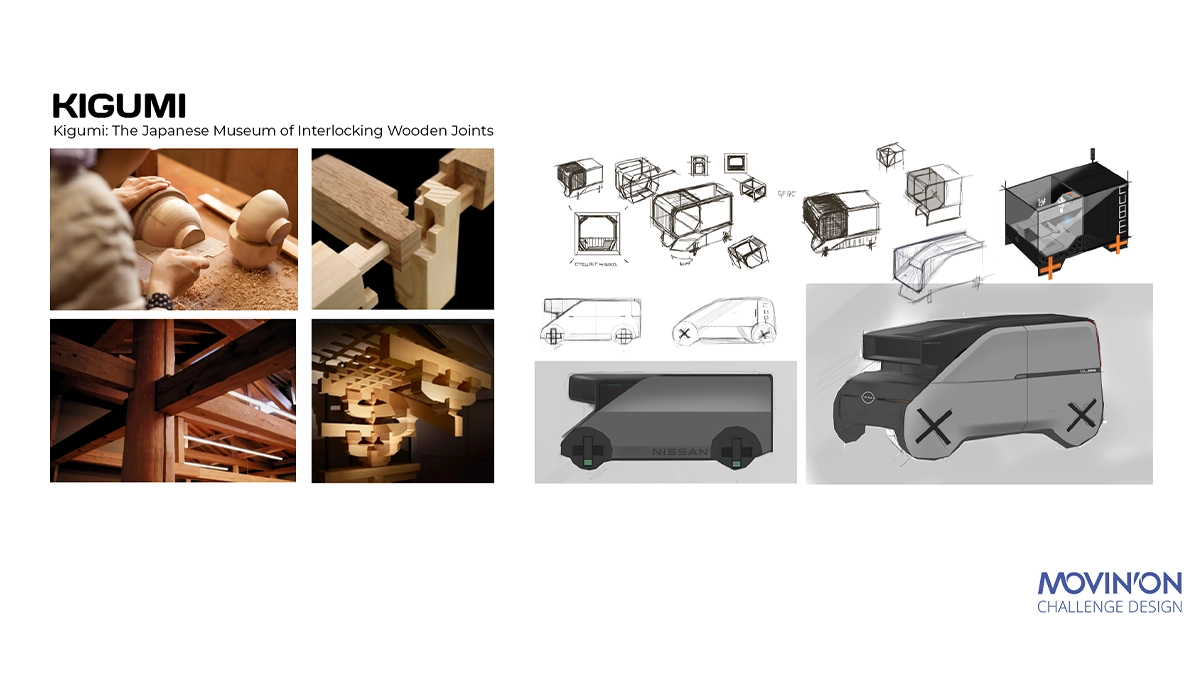
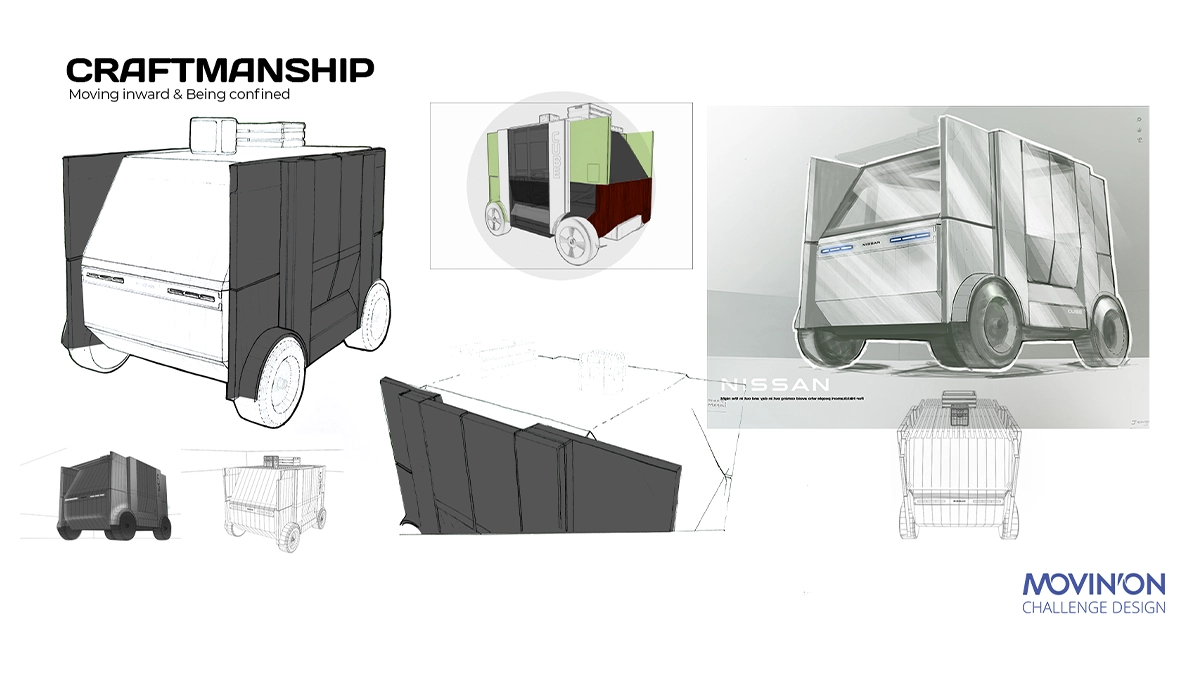
The Nissan Cube 2040 isn't your typical car; it's a whole new concept that breaks free from conventional automotive norms. It's designed to captivate a diverse audience, even those who don't usually get excited about cars. Stepping inside feels like entering a moving sanctuary.
The Interior of the Nissan Cube
Every detail of the Nissan Cube 2040 is carefully tailored to blend seamlessly with city life. Inside, you'll find a serene oasis amidst the urban chaos. The interior is a haven of peace and comfort, offering a refreshing escape from the hustle and bustle outside. Thanks to the use of opaque panels and minimalist openings, passengers are shielded from the outside world's noise and distractions. Sink into the plush seats and soak in the atmosphere – you'll immediately sense a wave of peace washing over you. It's as though the Nissan Cube 2040 was purpose-built to provide solace from the demands of modern life. Whether you're navigating your daily commute or embarking on a weekend adventure, this innovative vehicle promises a calm and soothing journey.
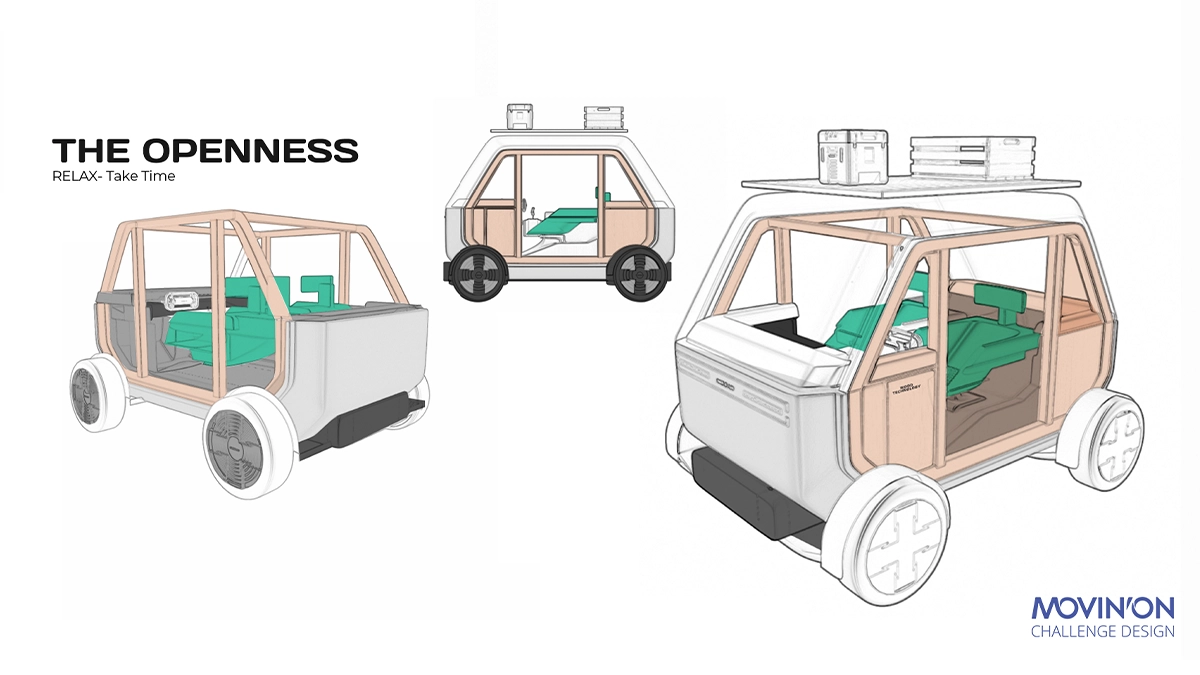
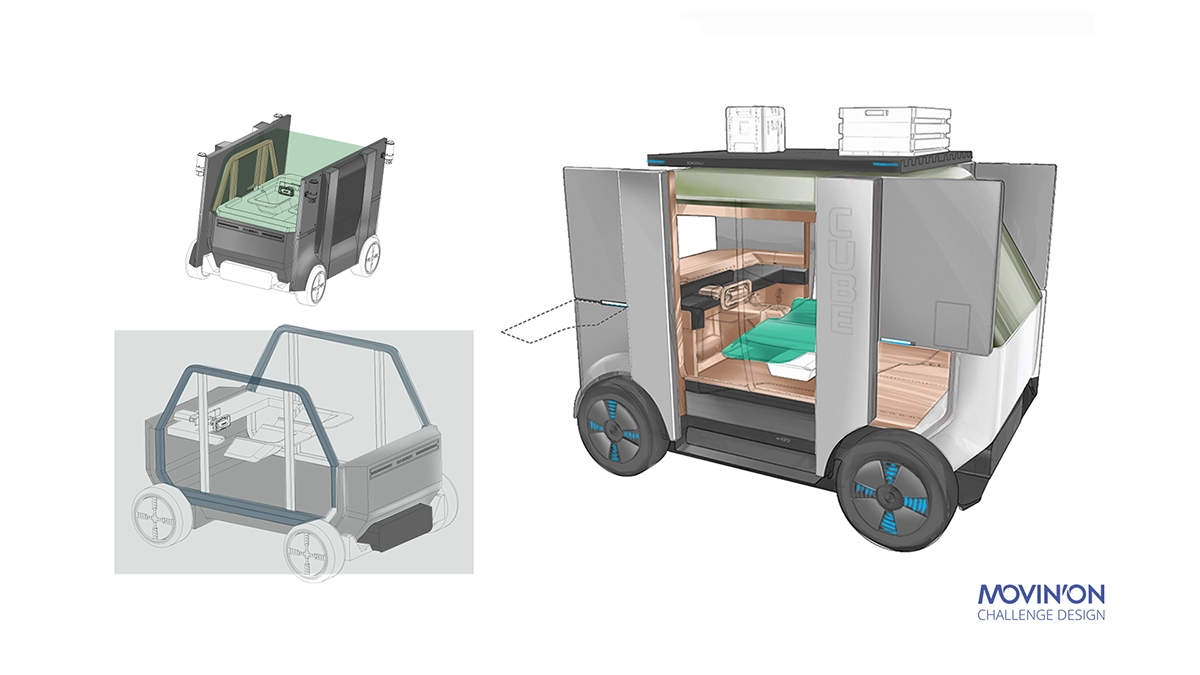
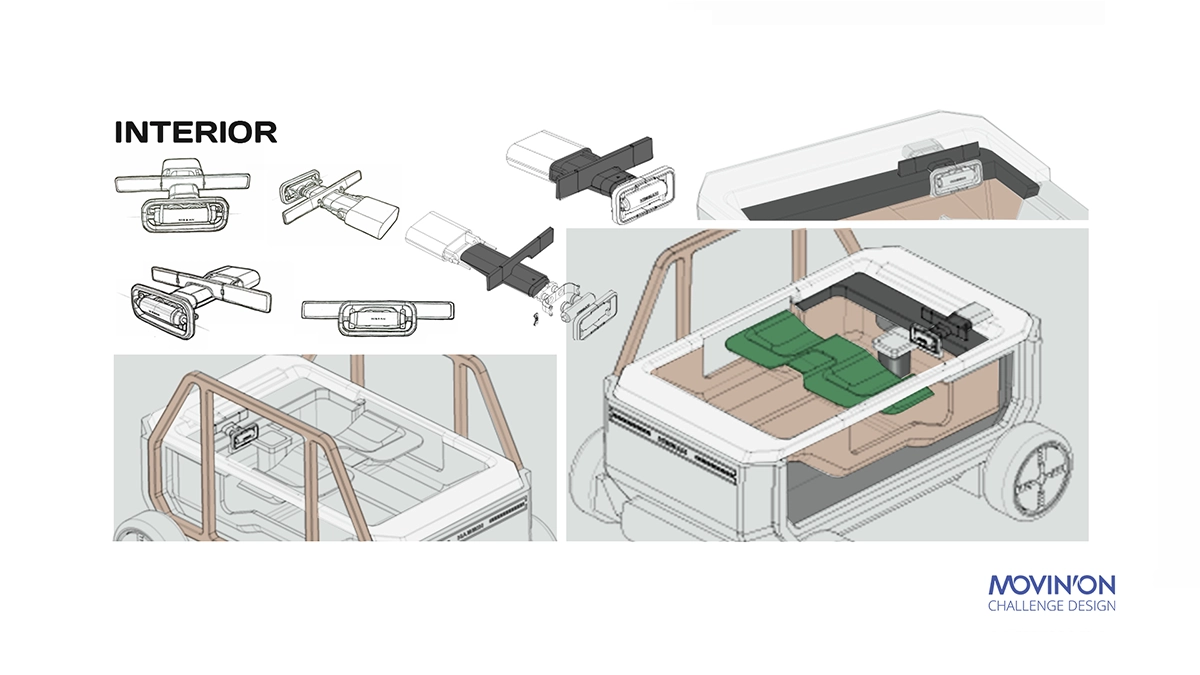
The Nissan Cube 2040 isn't just about comfort; it's also about sustainability. With its eco-friendly design and thoughtful features, it's a step towards a greener future. From its efficient electric powertrain to its use of recycled materials, every aspect of the Cube is geared towards reducing its environmental footprint.
Harmonizing Tradition with Modernity
Metal and wood are integral components of Japanese architecture and design, each contributing unique qualities to the overall look and functionality of the space. Wood, being central to the concept, is utilized from the very core of the interior, where it is milled and serves as the primary assembly material for other elements, all connected through 'Kigumi,' traditional Japanese woodworking techniques. 'Kigumi' originates from Japan and involves intricate joinery methods that don't rely on nails or screws. This craftsmanship, refined over centuries, results in sturdy and visually appealing structures. Kigumi joinery is renowned for its precision and durability, commonly found in traditional Japanese architecture, furniture making, and various woodworking projects. Its modular nature contributes to lower energy consumption and provides opportunities for skilled employment and customization.
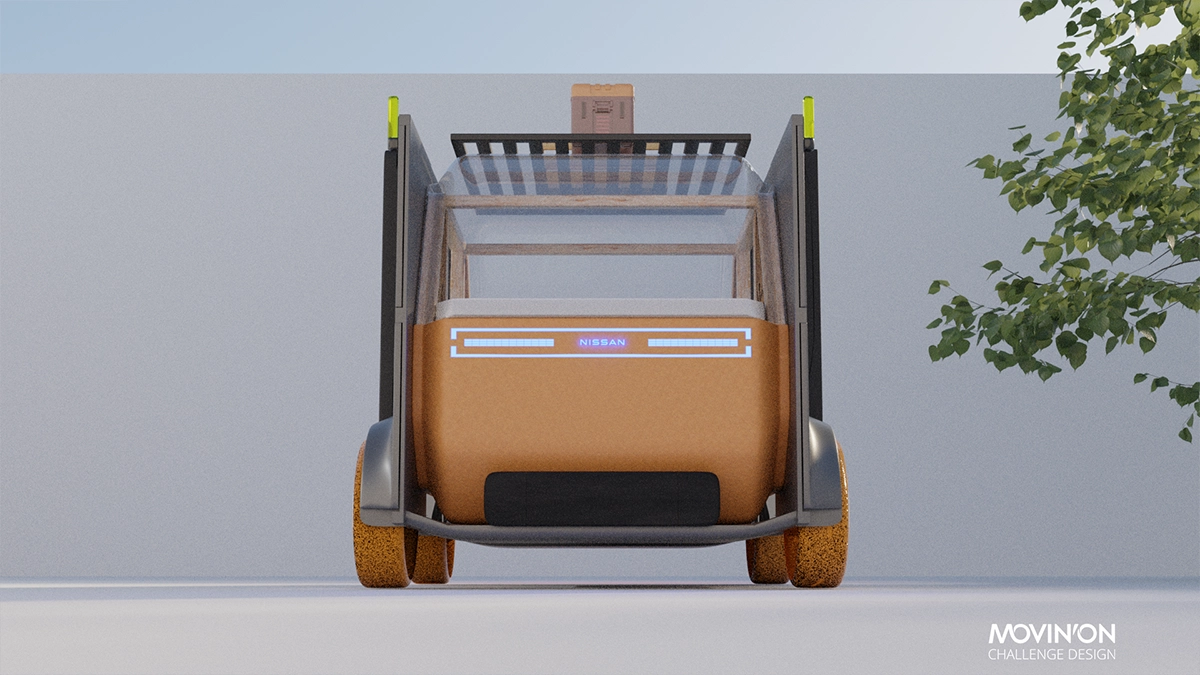
The Nissan Cube serves as a link between functionality and nature, transforming your parking space into a serene environment while captivating onlookers with its exquisite design. Catering to the Japanese appreciation for cars and utility, this concept offers a smaller footprint with ample space for cargo, meeting the needs of the masses.
Conclusion
As cities undergo rapid changes and urban environments shift, the Cube 2040 emerges as a beacon of advancement and sustainability. Prepare for an unparalleled journey with the Nissan Cube 2040 – the epitome of urban mobility's future. With its daring design, eco-friendly innovations, and dedication to blending tradition with contemporary needs, the Nissan Cube 2040 establishes a fresh benchmark for urban transportation. Join the movement and embrace the future of mobility today!
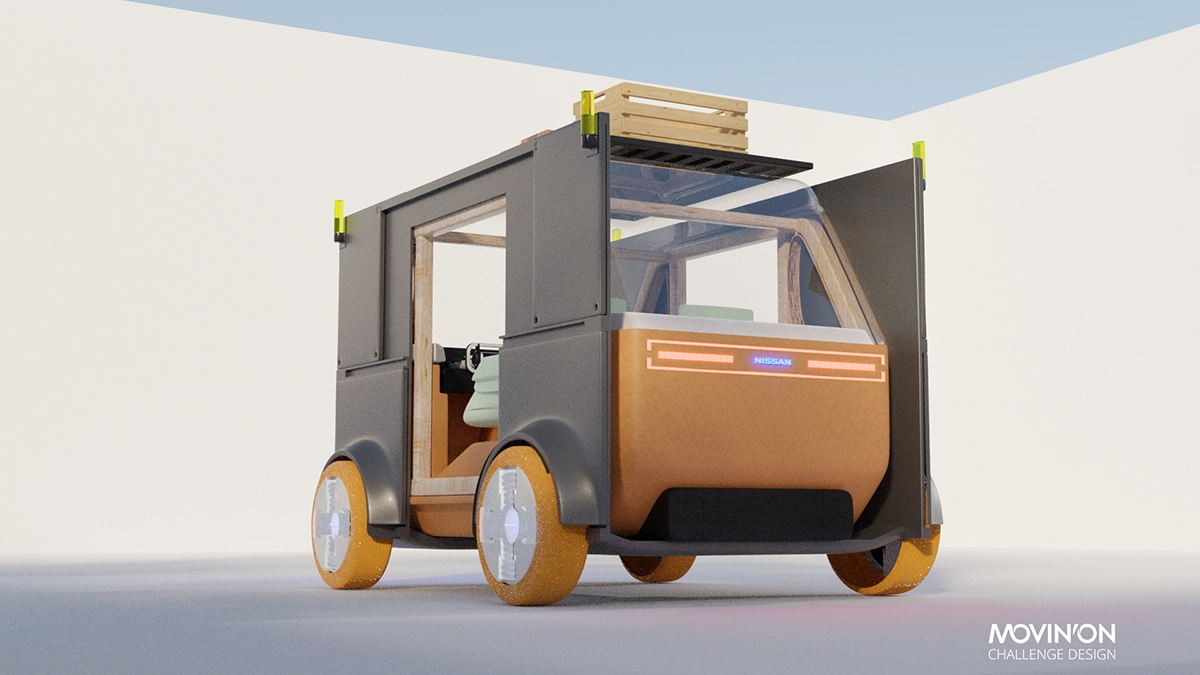
About Designer
Shantesh Angadi, an Indian transportation design graduate, currently holds the position of Industrial Designer at Ergo Design in Bangalore, India. He completed his degree from MITID Design in Pune and brings with him over 5 years of experience in product and industrial design. Before his current role, Angadi interned as a Transportation Design Intern at Studio34 in New Delhi. Angadi views design as a harmonious blend of logic and emotion, where both qualitative and quantitative aspects are delicately balanced. His design philosophy encompasses elements of science, psychology, and spirituality, resulting in a comprehensive approach to his work.
From an early age, Angadi's childhood was characterized by a keen curiosity and a deep-seated passion for the inner workings and aesthetics of machines. This innate curiosity prompted him to engage in experimentation with materials such as cardboard boxes and empty refills, eventually transforming his childhood hobby into a fulfilling profession.
Visit his profile
